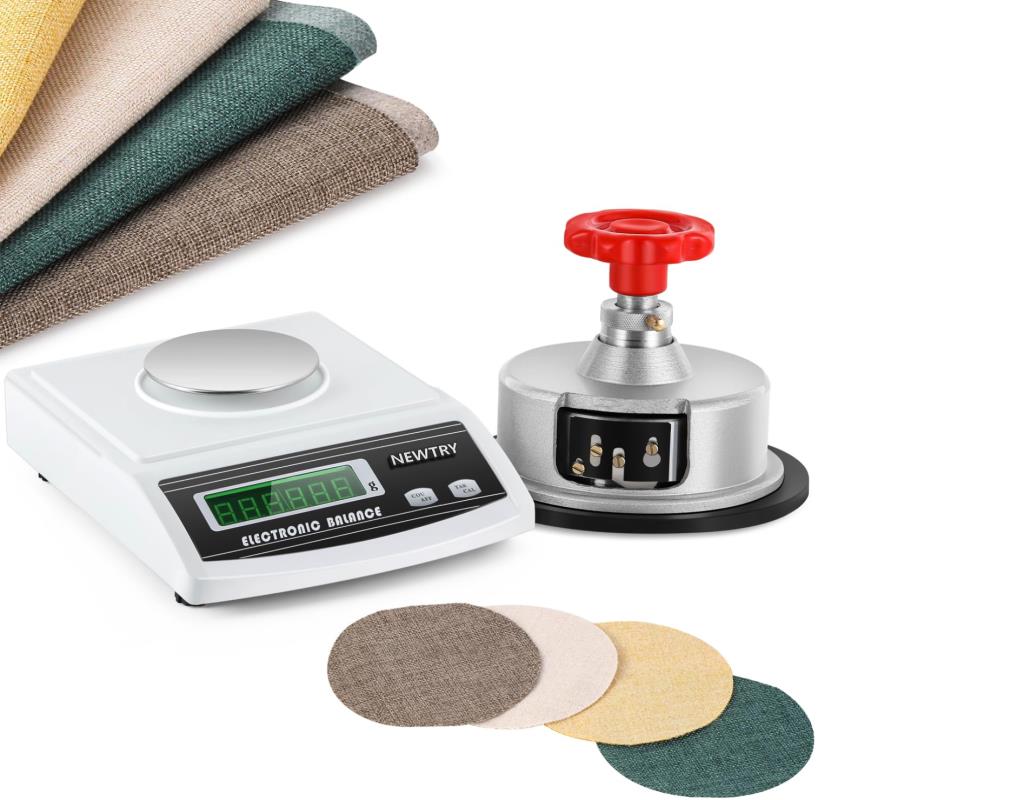Have you been thinking about purchasing fabric online for your next project? While convenient, it can sometimes be a challenge, especially for the beginner sewer. In this week’s blog, Martha Palaza (UoF instructor & Mass Art visiting instructor) and I, will share tips on how to overcome the challenges when purchasing fabrics online, what types of fabrics are best for beginners, and we will even share our online fabric resource list.
When purchasing fabrics online, some key considerations include carefully reviewing product details (such as weight, fiber content, and dimensions), ordering swatches, checking return policies, and planning for enough yardage for the project.
The Challenges of Online Fabric Purchasing
One of the first challenges is getting beyond an online fabric’s description. For example, “A luxurious sage greenbuttery-soft cotton lawn and drapes like a dream” in a fabric’s description, may arrive with the cotton feeling like you could sand down a wooden chair with it. And the so-called “dream drape” feels more like a disobedient shower curtain.
Then, there’s the issue of color. The color on the screen doesn’t match reality. That beautiful “sage green” that looked so elegant online, in person is closer to pea soup after a thunderstorm.
And lastly, there’s the fabric weight dilemma. Fabric descriptions might use vague terms like “lightweight”, “medium weight” or “heavyweight” and since weight is hard to judge without physically handling the fabric, you will need to know about a fabric’s “GSM” or “oz/yd²” value. This refers to the weight of a fabric measured in grams per square meter, or ounces for every one square yard of material. A lower number means the fabric is lighter and likely to have a softer drape while a higher number means a heavier, denser fabric.
Understanding Fabric Weight Descriptions
Online sellers sometimes provide fabric weight in GSM or oz/yd². Here is a rough guide when ordering fabrics by weight:
-
- Lightweight: up to 135 GSM; typically, sheer or drapey fabrics
- Mid-weight: 135–270 GSM; general for shirts, blouses, light pants
Heavy weight: 270+ GSM; suitable for jackets, pants and upholstery

Newtry 600g/0.01g Electronic Fabric GSM Weight Scale (Image credit: Newtry)
Fabric weight measurement devices are essential tools in the fashion industry for textile testing, allowing precise determination of fabric weight expressed as grams per square meter. They are used for quality control, construction and design purposes. One affordable option for is the Newtry 600g/0.01g Electronic Fabric GSM Weight Scale, available on Amazon for about $119. It can weigh fabric, paper, food, even a feather! If you need to convert a GSM number into oz/yd2, just divide the GSM number by 33.906. To convert the oz/yd2 to GSM, just do the reverse and multiple by 33.906.
However, weight alone does not indicate density, drape, or hand feel. Other considerations that impact the “hand” of a fabric are fiber type, weave, and a fabric’s finish. Therefore, requesting a sample swatch from the online fabric vendor is very helpful. And, by collecting swatches (or scraps you have at home) can help you develop a tactile sense for different weights, making it easier to interpret numbers online. Another tip is to keep a notebook with swatches and their weights as reference for future online purchases.
Fabric Purchasing Tips: For Beginners
Whether you purchase your fabric online or in a brick & mortar store, here’s what you need to know when selecting fabrics as a beginner.
The Dos

Good fabric choices: Made from natural fibers such as cotton, linen and wool.
Do Choose
- Natural fibers such as cotton, linen or wool
- Solid color, no prints
- Stable tightly woven fabric with a smooth hand in a plain weave or twill weave
Mid-weight fabric between 170 grams per square meter (GSM) / 5 ounces per square yard (oz/yd2) to 272 GSM / 8 oz/yd2

Good fabric choices: Solid colors/no prints, medium-weight plain and twill weave fabrics.
Tip: Working with a stable fabric that doesn’t fray excessively is easier and less frustrating, especially for a beginner. Fabrics made from natural fibers vs polyester blends are less slippery and are much easier to sew and iron. Choosing a solid color fabric vs a print, and a light color vs a dark color, enables you to better see your work as you sew. Mid-weight fabrics are much easier to handle than a lightweight or heavyweight fabric. As a guide: a T-shirt ranges between 150-250 GSM, a men’s dress shirt ranges from 100-200 GSM and a pair of jeans about 407-475 GSM.
The Don’ts

Difficult fabrics for beginners: shine, pile , leather and knit stretch fabrics.
Avoid
- Slippery, drapey or shiny fabrics like satin, charmeuse and lamé
- Pile fabrics such as velvet, velveteen, corduroy or fur
- Knit or stretch fabrics. Even 2% stretch could be a problem
- Leather and Faux Leather/Suede
Recommended Online Fabric Resource Links
| APC Fabrics
Britex
Blackbird Fabrics
Blue Moon Fabrics
Core Fabrics
Fabric Depot
Fabric Mart
FabScrap
Fabric Wholesale Direct |
Fabric.com
Fabrics & Fabrics
Fashion Fabrics Club
Fabric Wholesale Direct
Good Fabric
Gorgeous Fabrics
Mood Fabrics
My Textile Fabric
Offset Warehouse |
Organic Cotton Plus
Sew Sassy Fabrics
Stonemountain & Daughter
Surge Fabric Shop
Tessuti
The Fabric Store Online
Vogue Fabrics |
Check out Seamwork’s list of fabric resources: Best Places to Buy Fabric Online Across the World
Be sure to view Martha Palazza’s lessons on the UoF website
Happy Sewing!
-------------------------------------
By: Francesca Sterlacci
Title: Things to Know When Purchasing Fabrics Online
Sourced From: www.universityoffashion.com/blog/things-to-know-when-purchasing-fabrics-online/
Published Date: Sat, 18 Oct 2025 15:12:52 +0000
Read More
Did you miss our previous article...
https://edmmusic.news/fashion-clothing/okeechobee-music-festival-lineup-announcement-2026
 FestivalsMusicNew ReleasesArtistsFashion & ClothingVideosPrivacy PolicyTerms And Conditions
FestivalsMusicNew ReleasesArtistsFashion & ClothingVideosPrivacy PolicyTerms And Conditions
